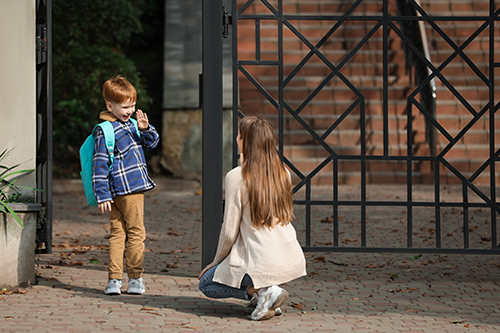When children feel forced to show affection, they get the message that they are not in control of their own body. That is a dangerous message for children to receive. Children who think they need to comply with adult requests for affection are more likely to be sexually abused. Forced contact also may ask children to disregard their “oh-oh” feelings about a person, or to disregard their gut instincts.
Talk to your children about touch early and often. Avoid using “good touch/bad touch” language, which may convey blame, or indicate to the child that they are bad if they get a “bad touch.” Talk about OK touch and not OK touch. OK touch keeps kids clean, safe and healthy. Not OK touch makes children feel scared, uncomfortable, unsure or confused.
If a child expresses fear or discomfort about any touch to any part of their body by any person, caregivers should stop and listen. Abusers often test boundaries with progressively more invasive touch. Empowering a child to say “no” to someone about contact they do not want may help prevent progression of inappropriate sexual contact. Help children understand that if they receive any kind of uncomfortable contact, they can tell a Safe Adult as soon as they can.
Make it clear that your child will never be punished for choosing not to engage in physical contact with others. Practice ways your child can respectfully decline hugs or kisses hello and goodbye, and if they want, how they can offer handshakes, high-fives or a wave instead.
